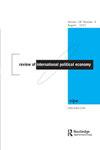New champions of preferential trade? Two-level games in China’s and India’s shifting commercial strategies
IF 3.7
1区 经济学
Q1 ECONOMICS
引用次数: 0
Abstract
Abstract Following decades of relative isolation, China and India have become the world’s largest new traders. In this paper, we focus on their Preferential Trade Agreements (PTAs). While the two economies initially followed similar paths, with a growing number of PTAs signed in the first decade of the 21st Century, since 2011 India has taken a U-turn and stopped completing them. China, on the other hand, has widened and deepened its trade agreements. We present a novel theoretical framework to analyze international economic negotiations by emerging economies and use it to study the puzzling divergence of the trade policies of China and India. By adapting the two-level game framework to emerging economies, we argue that there are key differences in the political economies of countries like China and India (compared to Western industrialized ones), which requires a more specific focus on the domestic side of the two-level game. We show that accounting for non-legislative domestic ratification processes and for iterative games and experiential learning by domestic actors are crucial in understanding the trade strategies of emerging economies. While much of the literature explains large emerging economies by looking at external systemic factors, we instead suggest that their domestic politics trumps international politics.优惠贸易的新拥护者?中国和印度商业战略转变中的两级博弈
经过几十年的相对孤立,中国和印度已经成为世界上最大的新兴贸易国。本文的重点是它们的优惠贸易协定。虽然这两个经济体最初走的是类似的道路,在21世纪的第一个十年签署了越来越多的自由贸易协定,但自2011年以来,印度的态度发生了180度大转弯,不再完成这些协定。另一方面,中国扩大和深化了贸易协定。我们提出了一个新的理论框架来分析新兴经济体的国际经济谈判,并用它来研究中国和印度令人困惑的贸易政策分歧。通过将两级博弈框架适用于新兴经济体,我们认为中国和印度等国家的政治经济存在关键差异(与西方工业化国家相比),这需要更具体地关注两级博弈的国内方面。我们表明,考虑到非立法的国内批准过程,以及国内参与者的迭代博弈和经验学习,对于理解新兴经济体的贸易战略至关重要。虽然许多文献通过观察外部系统因素来解释大型新兴经济体,但我们认为,它们的国内政治胜过国际政治。
本文章由计算机程序翻译,如有差异,请以英文原文为准。
求助全文
约1分钟内获得全文
求助全文
来源期刊
CiteScore
9.20
自引率
9.30%
发文量
47
期刊介绍:
The Review of Political Economy is a peer-reviewed journal welcoming constructive and critical contributions in all areas of political economy, including the Austrian, Behavioral Economics, Feminist Economics, Institutionalist, Marxian, Post Keynesian, and Sraffian traditions. The Review publishes both theoretical and empirical research, and is also open to submissions in methodology, economic history and the history of economic thought that cast light on issues of contemporary relevance in political economy. Comments on articles published in the Review are encouraged.

 求助内容:
求助内容: 应助结果提醒方式:
应助结果提醒方式:


